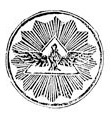|
|
| Автор | Moser, Michael
| | Название | Language Policy and Discourse on Languages in Ukraine under President Viktor Yanukovych |
| Место | Штуттгарт |
| Дата | 2013 |
| Издатель | ibidem Press |
| Язык | Английский |
| Страниц | 506 |
| ISBN | 978-3-8382-0497-0 |
| Метки | |
|
|
АннотацияThe status of Ukrainian as the sole state language of Ukraine has been challenged by various post-Soviet political forces since it was established in 1989 and enshrined in the Constitution in 1996. Since President Viktor Yanukovych came to power in February 2010, the President and the Party of Regions have put forward several initiatives to promote the Russian language at the expense of Ukrainian as well as the minority languages of Ukraine. Paradoxically, their most important instrument has been the European Charter for Regional or Minority Languages. However, the Russian language in Ukraine does not meet the criteria of a regional or minority language according to the Charter nor do those politicians who struggle for the “rights of the native Russian language” in the name of Russkiy mir represent the democratic values upon which the Charter is built, as perfectly reflected by the history of the unconstitutional language law of 2012. |
|
Оглавление книгиСодержание
Preface 11
Introduction 15
1. Loyalty toward the small large language 39
1.1. “Ridna mova” 39
1.2. Actual language usage 49
1.3. The citizens’ views of language policy 61
1.4. Advocates of “bilingualism” 69
2. The European Charter of Regional or Minority Languages
in Ukraine 71
2.1. The adoption of the Language Charter in Ukraine 71
2.2. The major mistake 74
2.3. The measures according to the Language Charter
as agreed upon by Ukraine 79
2.4. The establishment of regional languages 88
3. Viktor Yanukovych and the Ukrainian language 89
3.1. Coming to power 89
3.2. Victory Day 2011 96
3.3. The President and the Ukrainian language 1038
4. The Russian World and the “compatriots” 123
4.1. The Ukrainian population
of the Russian Federation 123
4.2. Fighting the “Orange Revolution” 135
4.3. Russkiy Mir and “historical truth” 140
4.4. Sviataya Rus’ 155
4.5. Official Russia’s impact on Ukraine and Ukrainians 162
4.6. The ultimate turn—Ukrainians as Russians 170
5. The hawk in Ukrainian language policy:
Vadym Kolesnichenko 181
5.1. Kolesnichenko and “linguistic tolerance” 181
5.2. Kolesnichenko the “human rights activist” 192
5.3. Kolesnichenko on guard for Russkiy Mir 200
6. Dmytro Tabachnyk and the Ukrainian language
in the educational sphere 211
6.1. Ukraine’s Minister of Education 211
6.2. Ukrainian-Russian history 222
6.3. Promoting the Russian language 225
6.4. Decreasing Ukrainian in the schools 234
6.5. Restructuring higher education 241
6.6. Decreasing Ukrainian in the preschools 243
7. Olena Bondarenko and the Ukrainian language
in the electronic media 247
8. The draft law of 7 September 2010 261
8.1. On the way to the draft law of 7 September 2010 261
8.2. Regulations of the draft law of 7 September 2010 266
8.3. Criticism in Ukraine 269
8.4. The Venice Commission’s alleged
“positive assessment” 275
8.5. The OSCE High Commissioner’s assessment 2769
8.6. The Venice Commission’s assessment 279
8.7. Reactions to the failure 284
8.7.1. The OSCE High Commissioner’s letter 284
8.7.2. Reaction to the Venice Commission 286
9. Anticipating the law: Serhiy Kivalov, the Constitutional Court,
and the Ukrainian language in the courts of law 291
10. Vadym Kolesnichenko’s and Serhiy Kivalov’s draft law
“On Principles of the State Language Policy” 297
10.1. Promoting and protesting
Kolesnichenko’s and Kivalov’s draft law 297
10.2. The Venice Commission’s Opinion
on Kolesnichenko’s and Kivalov’s draft law 312
10.3. Reactions to the “Opinion” 318
10.4. Reaction to the OSCE High Commissioner’s
unpublished assessment 323
10.5. Pushing through the draft law—the initial attempt 327
10.6. Pushing through the draft law—
the adoption in its first reading 346
10.7. Pushing through the draft law—
the adoption in its “second” reading 348
10.8. Reactions to the adoption in Parliament 353
10.9. The Parliamentary Speaker’s signature 367
10.10. The President’s signature 374
10.11. Entering into force 385
10.12. Amendments of the President’s Working Group 395
11. Summary and outlook 413
Bibliography 419
|
|
ЗакладкиДобавить книгу в свои заклaдки |

